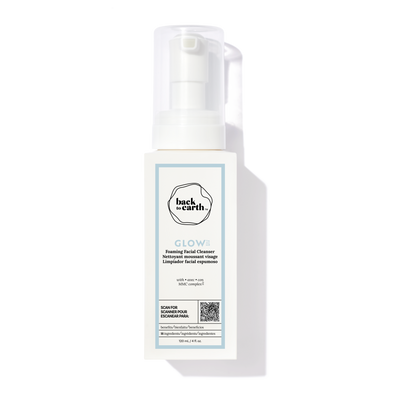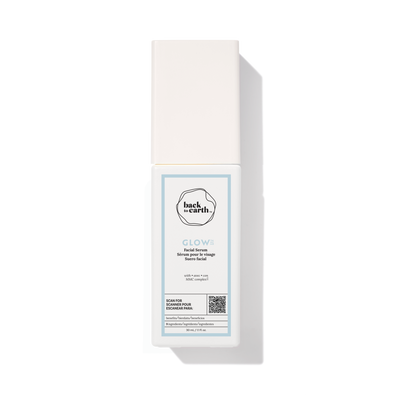Why Use A Natural Cleanser?
Your cleanser is the first step of your skin-care routine—in the morning and at night—so you want a formula that’s safe and effective. A cleanser that’s too gentle won’t properly remove makeup, oil and grime, making it harder for your other products to absorb. A cleanser that’s too harsh will strip the natural oils from your skin and disrupt the skin barrier, making your skin feel itchy, dry, rough and inflamed.
The right natural cleanser will use a balance of ingredients to gently clear the surface of your skin without stripping it. It will be just as effective as a conventional cleanser, but it won’t contain potentially harmful, irritating chemicals that your skin will absorb. Plus, it will have sustainable, cruelty-free ingredients to complete the healthful circle.
Here’s what to watch for when choosing a cleanser.
The good: Beneficial ingredients in your natural cleanser
A good natural cleanser doesn’t need to contain every ingredient on this list, but it should feature a few of them.
- Soothing, skin-softening natural oils: There are many natural oils that are known to be antibacterial, anti-inflammatory and work to calm and soften the skin. Some of these oils include jojoba, peppermint, rosemary and clary.
- Tea tree oil: Tea tree is known to be antibacterial and anti-inflammatory. It’s an ideal ingredient to help counteract the inflammation and irritation caused by acne.
- Witch hazel: This natural astringent helps to remove excess oil from the skin.
- Vitamin-rich fruit extracts: Oils and extracts from fruits like orange and lemon help refresh the skin and may even clarify and exfoliate.
- Natural surfactants: Surfactants emulsify oil and allow it to be washed away. Look for a gentle natural surfactant that is safe for sensitive skin. Some examples include potassium cocoate (from coconut oil), decyl glucoside (from corn and coconuts) or sucrose cocoate (from sugar beets).
- Natural preservatives: Skin-care products require preservatives so they remain safe and stable long enough for you to use them.
The bad: Ingredients that shouldn’t be in your cleanser
Conventional cleansers use many of these synthetic ingredients. According to the Environmental Working Group (EWG), they may have side effects for your health.
- Drying alcohols: SD alcohol, denatured alcohol, ethyl alcohol and isopropyl alcohol can cut down on oil in your skin, but they can also be overly drying and irritating.
- Parabens: These artificial preservatives may mimic estrogen and disrupt the endocrine system and reproduction. Examples include methylparaben, ethylparaben, probylparaben and butylparaben.
- Phthalates: Often found in synthetic fragrance, phthalates may be hidden in the catchall term “fragrance.” Like parabens, they may disrupt the endocrine and reproductive systems.
- Sulfates: Sodium lauryl sulfate (SLS) and sodium laureth sulfate (SLES) are surfactants that cause foaming. They may cause irritation for people with sensitive skin.
- Propylene glycol: A skin-softening agent, propylene glycol has been associated with allergic contact dermatitis.
- Fragrance: The term “fragrance” is unregulated because it’s considered proprietary information or a “trade secret.” If you want to know exactly what’s in the products you use, avoid products that list fragrance as a catchall term.
When choosing a cleanser to use at home, carefully read the label and watch for the above ingredients—both good and bad.




